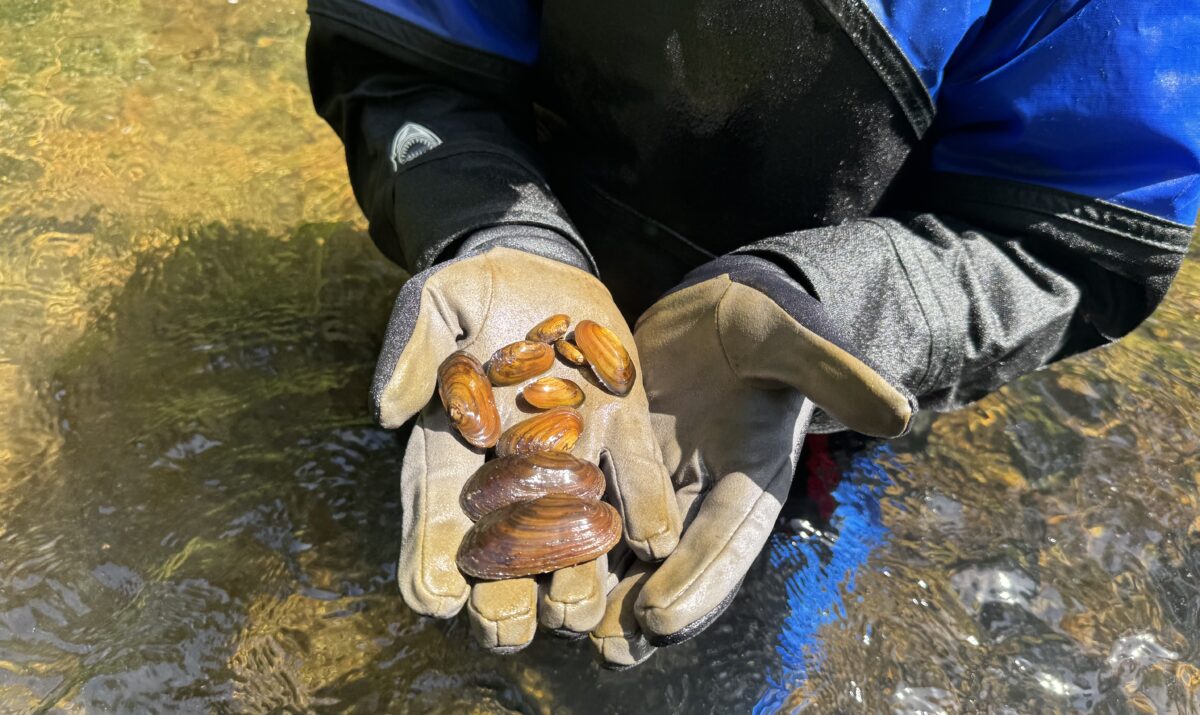Species Spotlight: Western Pearlshell Mussel
Thousands of freshwater mussels relocated in Washington's Wildboy Creek
As a part of the Kwoneesum dam removal, Columbia Land Trust and the Xerces Society relocated about 3500 native freshwater mussels living in a portion of Wildboy Creek that was going to be de-watered. This gave us an up-close appreciation for these invertebrates and their unique lifecycles!
“Freshwater mussels are like gems in the water,” said Emilie Blevins, Senior Conservation Biologist, The Xerces Society for Invertebrate Conservation. “They play valuable roles in our creeks and rivers. Our hope is that, by taking the time to carefully relocate these mussels all by hand, we are seeding hope for the future. As fish return to the restored sections of Wildboy Creek, we hope that the freshwater mussels are along for the ride!
Although they often go unnoticed, freshwater mussels have been around for more than 200 million years and are an important part of aquatic ecosystems. Their presence in the Washougal watershed signals biodiversity and contributes to water quality, as they filter algae, bacteria, and pollutants. A single mussel can filter 10-15 gallons of water a day! Eaten by otters, raccoons, herons, and kingfishers, they are a nutrient-dense part of the food chain. Mussel beds also enhance fish habitat by creating places for fish to hide, rest, and eat.
There are hundreds of species of freshwater mussels across North America and nearly 1,000 globally, but only three kinds are found in Oregon and Washington: floater mussels (Anodonta sp.), which includes several species, western pearlshell mussel (Margaritifera falcata), and western ridged mussel (Gonidea angulata). The mussels in Wildboy Creek are western pearlshell mussels.
Over 75% of freshwater mussel species in North America are listed as endangered, threatened, or of special concern. Their reliance on clean water for feeding, breathing, and reproduction makes them especially susceptible to water pollution. Additionally, construction that disrupt waterways and competition from invasive species have furthered population declines. Freshwater mussels are an indicator species, meaning that changes in the health of their populations often indicate changes in the health of the broader environment.
In collaboration with Xerces Society, we will continue to monitor the presence of freshwater mussels in Wildboy Creek as this ecosystem evolves now that natural ecological processes have been restored.
Read more conservation stories in our latest Fieldbook issue.
